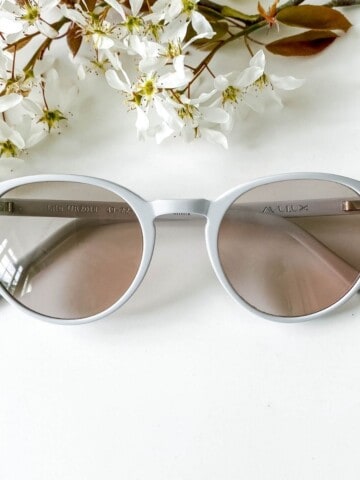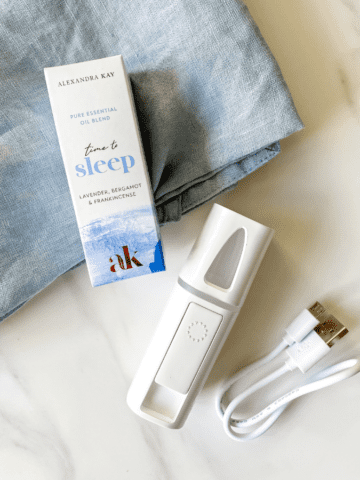Recently I did an Instagram reel '3 things non-spoonies take for granted . . .' It got so many comments from people on how they resonated with these aspects of the spoonie life, I thought I would write a larger post incorporating some of the other daily challenges myself and others often face.
I hope that talking about daily challenges with chronic illnesses makes people feel a little less alone. I know I used to think it was only me that struggled, and it was a relief, in a sense, to know I wasn't alone. There are, of course, far more challenges than I have spoken of here. Feel free to discuss yours in the comments below 🙂

A change in health circumstances is always tough
One of the things I hear most from my friends on Instagram, as well as online generally in the spoonie community, is how they felt like the only person who found it tough to experience new symptoms and the resulting difficult emotions that come along with such a change.
Phrases such as feeling like the 'odd one out' of a friendship group, and that it felt as though it was 'only them' going through such changes are often spoken of. I know that I felt the same way in my friendship group, none of whom have health challenges.
Each of us goes through the initial stages of chronic illness life differently, but one thing I think is so important is to have support. This can be from family, friends, the online spoonie community (who are fab!) and a supportive medical team.
The latter can be hard to find at times, but it is definitely worth pursuing the task of finding the right doctor to help manage your care.
Do non-spoonies realise how chronic illness impacts upon daily life?
Some of us are lucky to have supportive friends and family, who hold our hand through the ups and downs of chronic illness life. I wonder though, if people who don't live with chronic illness truly realise how much it impacts upon daily life?
Do they realise that symptoms can be there 24/7 for many of us with chronic migraine and fibromyalgia, for example? Or that medication doesn't magically alleviate all our symptoms?
And most of all do they realise that symptoms can influence so much of our day, our finances and our social life?

Here are some daily challenges with chronic illness that I think many non-spoonies may not realise:
1. Feeling exhausted after having a shower
I've mentioned this a few time in Instagram posts, and there are always two responses:
- Oh, this happens to me, it is so exhausting.
- Gosh, I thought it was only me that experienced this.
Showering is so hard. I find it worse than going for a walk, which I can't understand. Hair wash day is always something I dread, as it makes it even worse. I think we have all been there when we have to sit on the edge of the bed afterwards for a while to gather some energy to get dressed.
I can't speak for everyone on this, and only myself. But I assume that showering is tough due to standing on the spot (which PoTS / dysautonomia does not like one bit), as well as touching my head while hair washing (not great for vestibular migraine).
One thing I know I should invest in is a shower stool as I know so many people find them so helpful for showering. It needs to go on my 'things to buy on my next Amazon shop' list!
2. Having to spend a ton of money on healthcare
Oh the things I could do or buy if I didn't spend so much on healthcare and all the 'things' that go along with the chronic illness lifestyle!
I am very fortunate to have the majority of my healthcare on the NHS (but not all, I have to pay a few private doctors and I don't have insurance). This is truly something I am thankful for, but there are so many other expenses too . . .
Think travel to medical appointments, prescription charges, particular foods due to following a low histamine diet, and at times items to help manage my symptoms. Oh, and the loss of earning while I am at medical appointments definitely shouldn't be under-estimated either.
3. Having others imply we are faking or exaggerating our symptoms
Recently there was a BBC documentary called 'Sickness and Lies' that focuses on the chronic illness community, and accusations of 'fakery'. I.e. that people are faking being sick to become social media influencers and potentially make money from so doing. As you can imagine, it made a lot of people very cross . . .
Why? Because it feeds into a bigger narrative that people with chronic illness are faking their symptoms and their limitations.
That narrative often centres on people simply being lazy not unwell, that they are trying to avoid having to work and that we all just sit around all day watching Netflix while painting our nails.
Such ideas are highly problematic and incredibly hurtful. People with chronic illness work damn hard to manage their health, and feel as well as they can do. Claims of fakery are just another stab of hurt, on top of the hurt we feel about difficult health conditions, and all the symptoms we experience.

4. Having to rest, and it not being a luxury to do so
Personally I often find rest boring. Perhaps others in the chronic illness community will disagree, but I find it can be tedious. I want to be doing all the things! Not sitting quietly listening to a podcast or watching mindless TV. But I know my body well enough to know it is a necessity - not a luxury.
I think many non-spoonies would view rest through more rose-coloured glasses. Rest is often seen as luxurious, an indulgent time not working and instead lying in the sun or reading a book under a pretty tree. It's something to look forward to, and relish in.
For spoonies, as I have said, rest may be seen as somewhat different. Can it still be pleasant? Of course. I think many of us learn to take up enjoyable hobbies that are restful.
But rest that is basically 'enforced' isn't really as luxurious. For me, it's almost on my 'to-do' list of activities each day. It's a mandatory time of not doing, when I would quite like to be 'doing' if you see what I mean!
5. Often having to cancel meet-ups with friends and family
This is one of the heart-breaking aspects of chronic illness life. Many conditions are unpredictable. One day can be better, the next really problematic. Often without a 'why' as to the change in symptoms.
So the consequence is that making plans is really difficult, as we never know when a migraine attack, fibro flare or uptick in symptoms from other conditions are going to happen.
Many of us find ourselves reluctant to make plans, but personally I try not to do that. It only means that I become too conscious of my symptoms and fear the times I have to go out. So I make plans, and hope for the best.
Yet that does mean cancelling last-minute at times. Missing out on seeing friends and family is really hard. It's emotionally tough to not be able to join a coffee date, a trip to the cinema or go shopping when we want to. We don't want to have to send the 'can't come' text, but it has to be that way.
The only silver lining is that I very much appreciate the times I do spend with loved ones. A little gratitude always makes me re-think my day and perspective. I hope you don't have to send the text saying no too often.
For some more examples on daily challenges with chronic illness have a read Sheryl of A Chronic Voice's post 5 deceptively simple everyday achievements
Related posts
What is medical gaslighting? Does it happen to women more often?
Pacing with chronic illness (how I choose to 'spend' my energy)
Come join me on Instagram and Twitter for more posts on daily life with chronic illness!

















Comments
No Comments